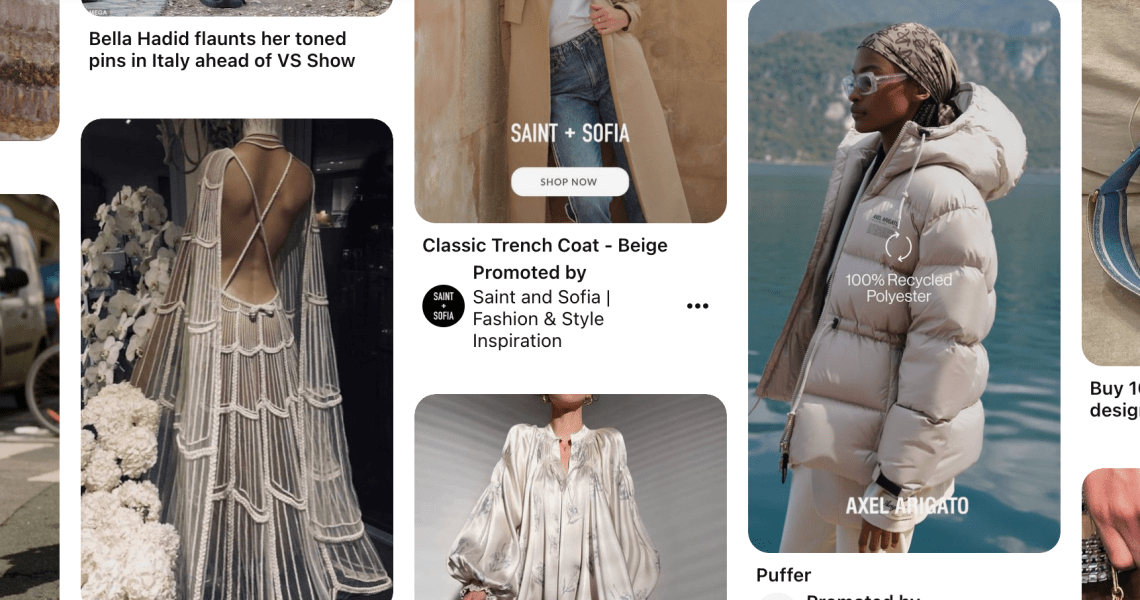Starting May 1, Maybelline is dedicating itself to mental health awareness through various initiatives, including Pinterest.
Since 2020, Maybelline has operated a mental health initiative called Brave Together. It plans to donate $10 million to various domestic and global NGOs, as well as support 1 million mental health conversations from 2020-2025. Some of this includes its Brave Talk program which works with the JED Foundation to train college students and staff for free on how to support peers who may be experiencing mental health issues. Maybelline will further amplify that program in May through additional paid and unpaid social media, alongside a sponsorship of the non-profit Sad Girls Club’s wellness event. But perhaps the biggest digital moment is the use of Pinterest’s new Creator Editorial Spotlight feature, which debuted May 2020, as the first inaugural brand partner.
“Pinterest is one of those safe spaces for creators and consumers to go to enhance their creative juices, and it’s a relaxing platform. It’s not a platform that has tons of noise; it’s very inspirational,” said Jessie Feinstein, svp of marketing for Maybelline. “It’s a very important platform for us with Brave Together because it’s the place where people go to, kind of, alleviate anxiety and depression.”
Pinterest users can access the Brave Together content via the search bar, where Pinterest has a carousel that suggests search ideas, shows popular searches and includes a section called Express Yourself, where Maybelline content lives. Maybelline has also published 15-second video content for Brave Together on its own page, where it has 3.1 million followers and over 10 million monthly views, ensuring that more people are exposed.
According to Pinterest’s annual Pinterest Predicts trend report, alternatives to talk therapy — like expressive art and music therapy — are on the rise. That also includes art journaling, with searches up a whopping 37x at the time of the report’s publication at the end of 2022. Maybelline worked with Pinterest content creator Isabelle Dias to create three pieces of content. Dias focuses on self-improvement, wellness and self-care in her Pinterest work, and has 70,000 followers and 3 million monthly views on her Pinterest board. Maybelline also tapped four other creators to create 15-second video content on the editorial spotlight. Each video includes the hotline to text the Crisis Text Line for mental health crises.
“[The Spotlight feature] is also about the evolution of creator content on Pinterest, from the perspective of how do brands leverage creators to build a connection in an authentic way with a Pinterest audience?” said Rachel Goodman, head of beauty partnerships at Pinterest.
Feinstein declined to share specifics around investments in Pinterest. Reaching Gen Z has been a focus of both Maybelline and Pinterest, both for mental health and in general. According to Piper Sandler’s bi-annual Taking Stock With Teens report, Maybelline is ranked as the No. 3 most popular cosmetic brand among Gen Zers, behind E.l.f Beauty and Rare Beauty. Meanwhile, in 2020 Pinterest surpassed 400 million monthly users with both Gen Zers and millennials leading the way. The Gen Z audience specifically grew 50% year-over-year, per a Pinterest press release. Numerous reports have also indicated that Gen Z is facing a mental health crisis, reporting to be more emotionally distressed than other generations and more frequently diagnosed with a behavioral-health condition.
Pinterest has also been in launch mode as it continues to try to compete on ad sales and content creator relationships against Meta, Alphabet and TikTok. In July 2022, it launched a new shopping feature for merchants. Shortly after, in February, came a travel hub for Black travelers called “Find Your Routes” plus a new addition of “Pinterest Academy” to help advertisers maximize their platform campaigns. According to Pinterest’s first quarter 2023 earnings released in April, its revenue grew 5% year-year-year to $603 million, and its global monthly active users increased 7% year-over-year to 463 million.
“Both [Maybelline and Pinterest] are focused on mental health, especially amongst the Gen-Z population; it goes beyond your typical beauty product campaign,” said Goodman.




